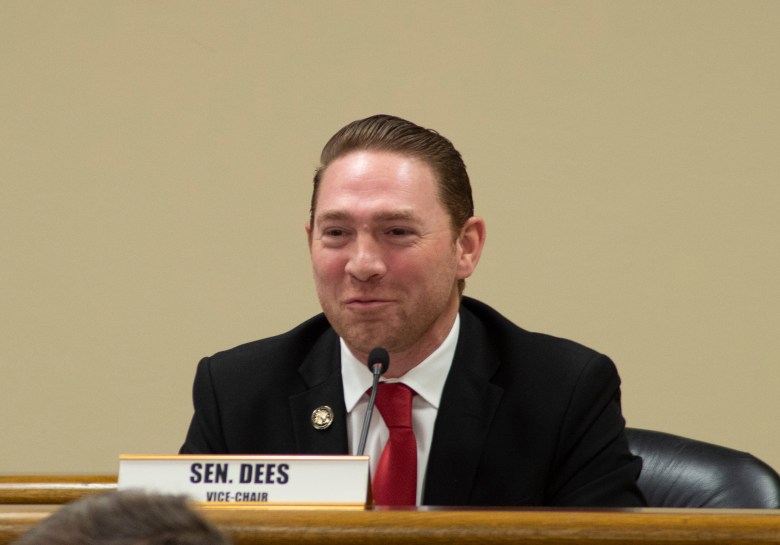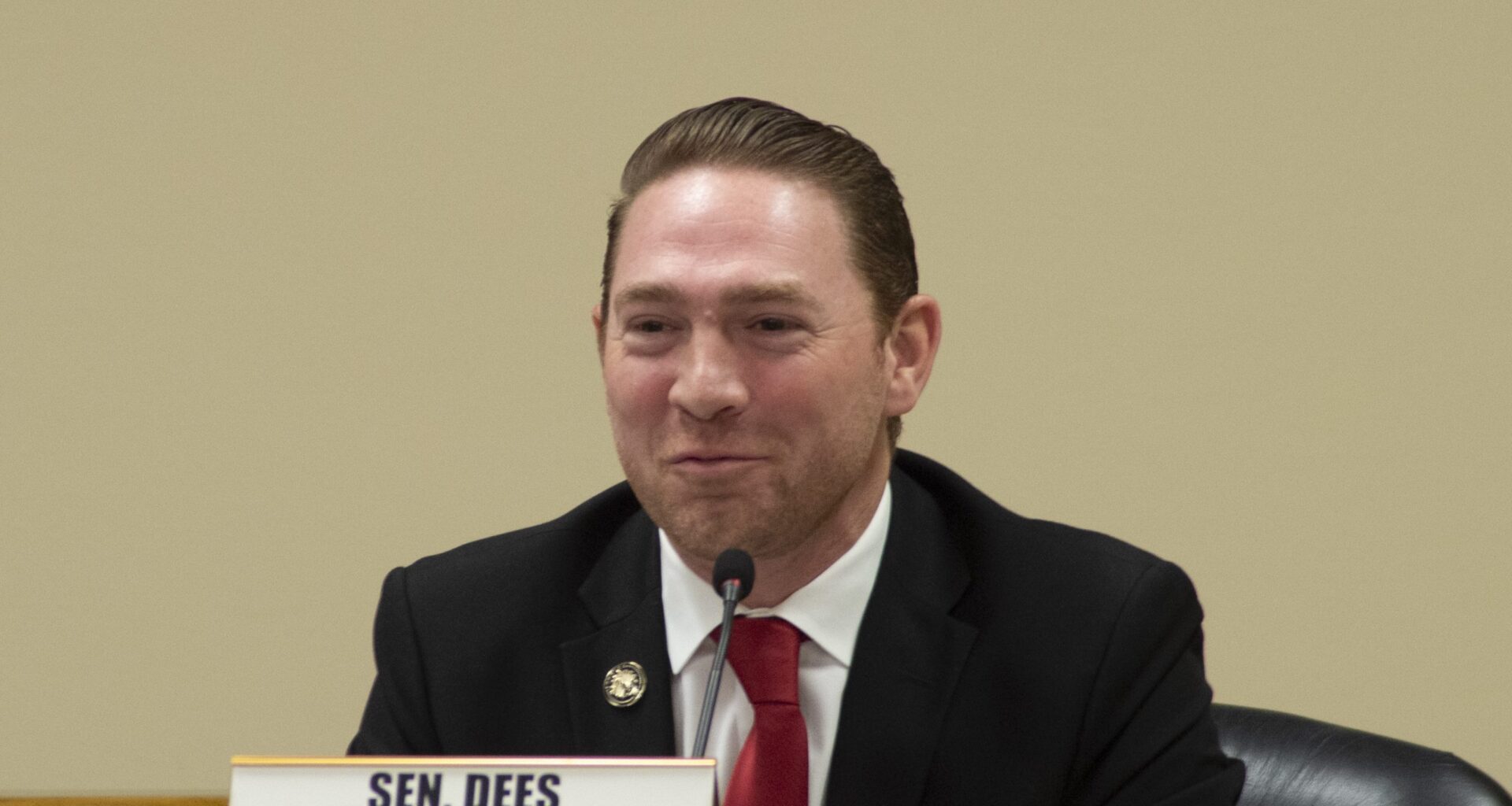 State Sen. Tyler Dees (R-Siloam Springs) was the lead sponsor of the bills to amend Arkansas’s Social Media Safety Act, which was previously blocked by a judge. Credit: Brian Chilson
State Sen. Tyler Dees (R-Siloam Springs) was the lead sponsor of the bills to amend Arkansas’s Social Media Safety Act, which was previously blocked by a judge. Credit: Brian Chilson
A nonprofit trade association for internet companies is again suing Arkansas over legislation regulating social media platforms, arguing two new state laws are unconstitutional.
Approved by lawmakers in April, the laws would prohibit social media platforms from promoting addictive behavior and allow parents to sue if their child is harmed due to content they’re exposed to.
NetChoice argued in a lawsuit filed last week that the laws violate the First Amendment and are preempted by the federal Communications Decency Act, which protects online service providers from being sued for content created by users, according to the complaint.
Plaintiffs are asking a judge to declare the Arkansas laws unconstitutional and block them from going into effect.
Friday, Eldredge & Clark, LLP from Arkansas and Clement & Murphy, PLLC from Virginia filed the lawsuit against Attorney General Tim Griffin and the state’s 28 prosecuting attorneys in the U.S. District Court for the Western District of Arkansas.
Act 900 amends the state’s Social Media Safety Act, a 2023 law a federal judge permanently blocked in March. Amendments include prohibiting social media platforms from engaging in practices “to evoke any addiction or compulsive behaviors” in minors, and changing the definition of a minor to someone 16-years-old or younger.
NetChoice contends the amended Social Media Safety Act is “even more of an affront to the First Amendment” than its original version because it prohibits evoking addictive and compulsive behavior without clearly defining those terms.
The complaint questions, for example, how many times a day users could check their social media account each day for it to be considered compulsive, and notes that the vague language would create a chilling effect on free speech by forcing people “to steer far wider of the unlawful zone” than they would if the law had clear boundaries.
Act 901 allows parents to sue social media platforms if exposure to content on their sites results in their child developing eating disorders, commiting or attempting suicide, or becoming addicted to the platform’s feeds.
NetChoice Associate Director of Litigation Paul Taske said in a press release that it “violates the free speech rights of Arkansans and wastes taxpayer dollars on unconstitutional censorship.”
“Politicians cannot control what protected speech you see, say or share online — according to the Supreme Court itself. We are again suing the government of Arkansas to stop it,” Taske said. “Parents — not bureaucrats — should control how their children engage online.”
While NetChoice’s members “strongly oppose” speech that promotes eating disorders or self-harm and already prohibit such content, the complaint argues that Arkansas’ new laws “impose even more restrictions and draconian sanctions” on social media platforms.
“By banning speech based on what impact it ultimately has on any user of the online service, the law sweeps in all manner of constitutionally protected expression that NetChoice members currently disseminate,” the complaint states.
Plaintiffs argue that parents already have several ways to restrict kids’ access to online services. Additionally, NetChoice members like Facebook and YouTube offer several parental controls to protect minors online, and have adopted policies prohibiting harmful content, according to the complaint.
NetChoice sued Arkansas two years ago over the Social Media Safety Act, which required age verification to create new social media accounts. The law was a priority for Gov. Sarah Huckabee Sanders in her first year in office, and would have been the first law of its kind in the nation.
A federal judge issued a preliminary injunction about two weeks before the law was set to take effect in 2023. The judge declared the law unconstitutional in March. Griffin filed a notice of appeal.
Two days after the judge’s ruling, Arkansas lawmakers filed two bills that supporters said were aimed at expanding social media protections for children. Both were sponsored by the lawmakers who ran the 2023 social media legislation, Republicans Sen. Tyler Dees of Siloam Springs and Rep. Jon Eubanks of Paris. The governor signed them into law in April.
The case has been assigned to U.S. District Judge Timothy Brooks, the same federal judge who struck down the Social Media Safety Act.
Arkansas Advocate is part of States Newsroom, a nonprofit news network supported by grants and a coalition of donors as a 501c(3) public charity. Arkansas Advocate maintains editorial independence. Contact Editor Sonny Albarado for questions: info@arkansasadvocate.com.
